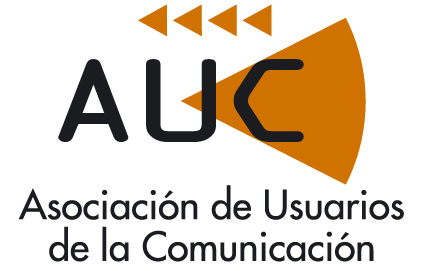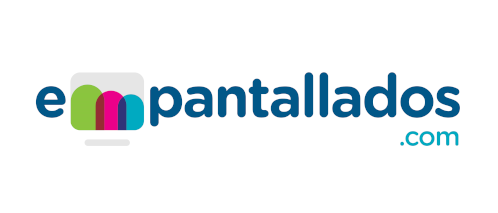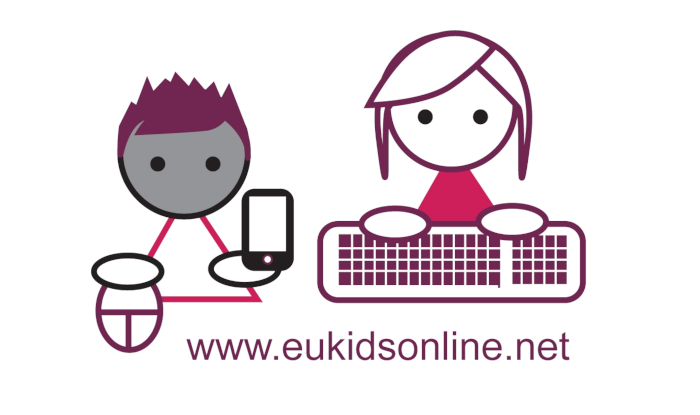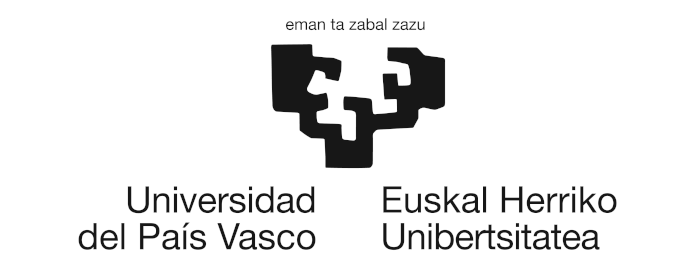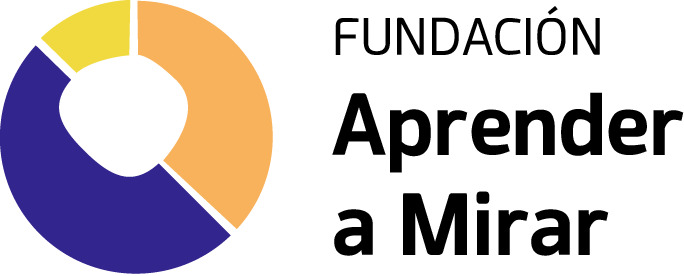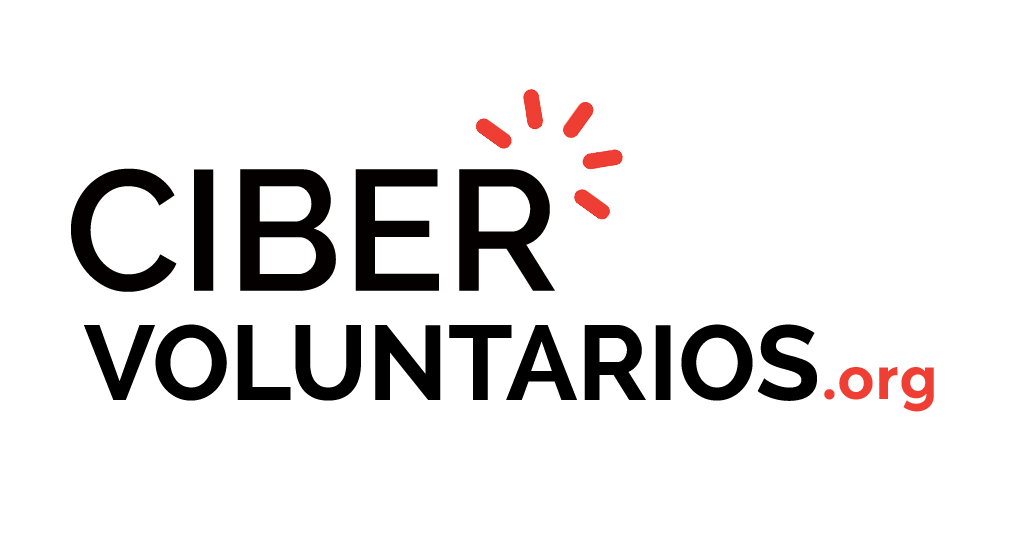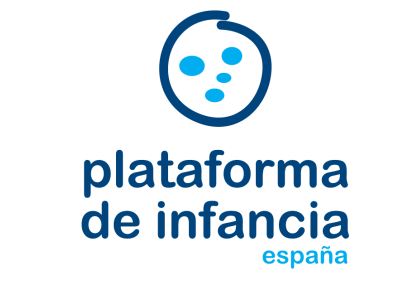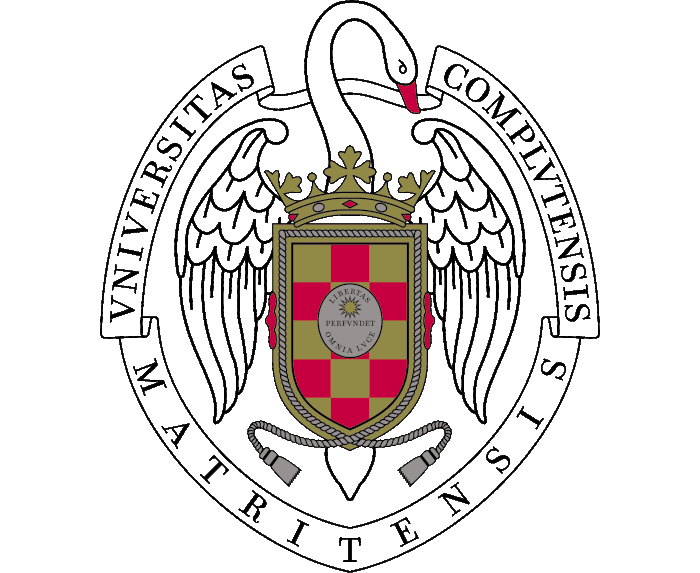SIC-SPAIN 3.0

Funding and work programme and call for applications
The SIC-SPAIN 3.0 Project 'Safer Internet Centre Spain 3.0' is a project co-funded by the European Union (EU) through the Digital Europe, call DIGITAL-2021-TRUST-01-SAFERINTERNET.
This call gives continuity to the calls of CEF-Telecom: Safer Internet (2015-CEF-TC-2015-1) , Safer Internet (CEF-TC-2018-1) and Safer Internet (CEF-TC-2020-1) with similar objectives, which has allowed firstly the creation of the SIC (Safer Internet Centre / Centro de Internet Segura) in Spain, called Internet Segura For Kids (IS4K), and secondly the creation and consolidation of a public-private collaboration platform to promote the safe use of the Internet.
Duration
The planned duration of the project is from March 2022 to February 2024 inclusive
Motivación y Justificación
The DIGITAL-2021-TRUST-01-SAFERINTERNET call aims to support National Safer Internet Centres (SICs) to provide online safety information, educational resources, awareness raising tools and advice and reporting services (through dedicated helplines) for children, parents and teachers and other professionals working with children. The activities carried out by the SICs help children to cope with online risks and to become digitally resilient citizens capable of analysing media information and applying critical judgement and will enable citizens to anonymously report child sexual abuse material online.
The funding will ensure the financial sustainability of the European network of SICs, by enabling the awarded National Safer Internet Centre to provide the following services
Awareness-raising: An awareness-raising centre to raise awareness among children, young people, parents, educators and other professionals working with minors about the risks they may encounter through online activities related to child protection. The aim will be, also in the light of the experience of the Covid-19 crisis, to identify and address emerging risks and challenges such as mental and physical health problems related to the use of technologies, as well as to promote digital literacy, empowerment and participation of young people.
Helpline: Online helpline services that provide support to children, parents, educators and other professionals on issues related to child online protection.
Hotline: to limit the availability of child sexual abuse content by managing citizen reports and other hotlines of the international INHOPE network, in collaboration with the Law Enforcement Agencies (LEAs).
Benefits
The main benefits of this project are:
Expand and improve dissemination at national level, working with children, young people, parents, educators and associated professionals to learn about the threats to minors in the use of the Internet and technology.
Coordinate a public-private platform for national collaboration to cooperate on diagnosis and awareness-raising.
Continue, develop and improve the service provided to these groups through the Helpline 017.
Strengthen the presence of the Spanish SIC in the Insafe and INHOPE networks.
Increase collaboration with the LEAs in relation to the hotline.
Project goals
The SIC-SPAIN 3.0 Project led by INCIBE aims to provide continuity for 2 years to the lines of activity linked to the Spanish SIC, to promote online opportunities and tackle risks in order to achieve a safer Internet for minors. To this end, it focuses on three main objectives:
Continuity and reinforcement of SIC services
SIC-SPAIN3.0 will provide continuity and reinforce the generic services: awareness-raising, helpline and hotline services. In collaboration with strategic partners, diagnostics, awareness-raising campaigns, training programmes and practical resources will be developed. Young people will continue to contribute their views through the Youth Panel, Safer Internet Day continue to be celebrated annually and special attention will be given to the educational environment and the development of digital competences in cyber security and the improvement of cyber coexistence in schools. Furthermore, the Helpline 017 (helpline of the Spanish SIC) will be further developed by expanding and improving the operation and exploring ways to enhance awareness of the service and relations with stakeholders.


Continuity of a consortium of key awareness-raising actors
The national public-private consortium coordinated by INCIBE will continue to operate for the development of initiatives to improve the protection of children on the Internet in Spain, achieving greater coordination and impact at national level. An Advisory Board will also be created to improve the alignment of the SIC's strategy and lines of activity with national objectives and European objectives, especially with regard to the updating of the BIK Strategy.
Strengthening the presence in specialised forums
Contribution of INCIBE's Spanish SIC in working groups and forums on children and Internet safety, in the pan-European INSAFE network and in the international INHOPE network, with the aim of facilitating the exchange of knowledge and experiences that contribute to a better provision of services and definition of public policies for the promotion of safe and responsible use of the Internet by minors in Spain.

Beneficiaries
Children, their parents or guardians and educators together with other professionals working with them are the main direct beneficiaries of the project through all the actions that will be executed.
Results See results page
Project consortium
SIC-SPAIN 3.0 is led and coordinated by INCIBE. The consortium therefore consists of:
(Coordinator) | Spanish National Cybersecurity Institute (INCIBE)It is a public entity and under the authority of the Ministry of Economic Affairs and Digital Transformation through the Secretary of State for Digitalisation and Artificial Intelligence (SEDIA) and consolidated as a reference entity for the development of cybersecurity and digital trust for citizens, academic and research networks, professionals, companies and especially for strategic sectors. With an activity based on cybersecurity and digital trust in Spain through the provision of services for citizens, businesses and academia, research against cybercrime and participation in cooperation networks at national and international level. Under the management of INCIBE, Internet Segura for Kids (IS4K) es is the Safer Internet Centre for minors in Spain and its objective is to promote the safe and responsible use of the Internet by children and adolescents. IS4K acts in line with the European strategy BIK+ (Better Internet for Kids) and is part of the INSAFE and INHOPE Networks, deploying the lines of activity of the Internet safety centres: awareness, helpline and report line, while contributing to the coordination of the actions of awareness and empowerment of young people carried out by the consortium SIC-SPAIN 3.0. |
(Beneficiary) | Ministry of Home Affairs (Spain)The Spanish Ministry of Home Affairs is the Department of the General State Administration responsible for the proposal and execution of the National Government's policy on citizen security (State Security Forces, penitentiary institutions, civil protection, road safety, etc.), guaranteeing the exercise of the fundamental rights set out in the Constitution, foreigners and international protection, as well as ensuring the proper functioning of the electoral processes. Its collaboration in the project will be carried out through its LEAs and will focus on the operation and coordination of the activities of the hotline and awareness-raising activities. |
(Beneficiary) | Asociación de Usuarios de la Comunicación (AUC)AUC is an organisation whose main function is to defend the interests of citizens as users of media and social media, as receptors of their messages and as potential targets of their content or in the use of their data. Its activities focus, among others, on the protection of young people and children from inappropriate or harmful commercial content and communications. It has extensive experience in the project, in which it is involved in developing a system for labelling and rating content, due to its participation in forums such as the Self-regulation Code on television content and children, the ICAA Film Rating Commission, the Internet Governance Forum and advice to different providers and distributors of online content. AUC's contribution to this project focuses on:
|
(Beneficiary) | EmpantalladosEmpantallados.com is a free-access online project aimed at Spanish-speaking parents, with the objective of helping them to educate their children in the healthy use of technology. Empantallados is an initiative of Fomento de Centros de Enseñanza, in collaboration with numerous experts in education, health and technology. Empantallados will support the mission of the Consortium with:
|
(Beneficiary) | EU Kids Online Spain (UPV/EHU)The UPV/EHU research group is the Spanish team of EU Kids Online, an international research network that aims to improve knowledge about the online opportunities, risks and safety of European children. These researchers use a variety of methods to map the online experiences of children and their parents, in collaboration with various national and European policy actors. It has been funded by the European Commission's Better Internet for Kids programme. Its contribution will mainly focus on activities related to school diagnostics and cybersecurity. The analysis will consider the main research databases in the area and will be supported by the participation of the members of the group in the CORE European project dedicated to collecting all the scientific evidence on the relationship of children with communication technologies. |
(Beneficiary)
(Affiliated Entity) | Aprender a Mirar Foundation(FAAM)The Aprender a Mirar Foundation is a non-profit organisation that works for the defence of audiovisual media users, especially children and adolescents, through training, information, social action for prevention, denunciation and defence, and the promotion of values. It acts as a consultant to promote the quality of content, with a positive approach that guarantees the protection of minors. Asociación de Consumidores de Medios Audiovisuales (ACA) The Audiovisual Media Consumers Association of Catalonia is a non-profit association, affiliated to FAAM, which works for quality in the audiovisual media and in the defence of the rights of users, especially minors, who are the most defenceless in front of the screens. FAAM and ACA participate with the following activities:
|
(Beneficiary) | Cibervoluntarios FoundationCibervoluntarios Foundation is a pioneering organisation in technological volunteering and aims to alleviate social gaps, generate social innovation and citizen empowerment, promote Human Rights and the achievement of the 2030 Agenda through the social use of ICTs. Since 2001, Fundación Cibervoluntarios has been promoting digital transformation with social impact, expanding the rights, opportunities and capacities of thousands of people in situations of digital vulnerability through the use and knowledge of all kinds of technological tools. To achieve this, they work with a network of more than 1,800 cyber-volunteers and collaborate with more than 1,300 national and international entities and organisations. With all their activities, they reach 60,000 people annually. A track record that has been recognised by the Financial Times as one of the 100 entities leading the Digital Transformation in Europe and more recently by FORBES Magazine as one of 'Spain's 100 Other Top Fortunes'. Cibervoluntarios will continue in the project with its programme 'Stop, Think and Connect, against digital gender-based violence' to prevent digital gender-based violence in minors. This programme includes training to detect digital gender violence in educational centres, advertising campaigns, creation of videos, generation of a report and events. |
(Beneficiary) | GaptainGaptain is an impact EdTech whose mission is to help schools and families in the education and accompaniment of children in the digital environment. Through the binomial education + technology, it tries to promote a culture of cybersecurity in citizens, while measuring its impact and publishing research on usage habits and trends with the aim of improving coexistence and social cohesion. Gaptain focuses its activity on:
Other Gaptain resources: online magazine 'Educación y Bienestar digital', video channel Educación digital, online itinerary 'Educando en digital'. |
(Beneficiary) | Federación de Asociaciones para la Calidad de los Medios (iCmedia)iCmedia promotes different initiatives to improve the quality of audiovisual content. iCmedia is a member of the European Commission's Media Literacy Expert Group, as well as of the Joint Commission for Self-Regulation of Spanish Television, which allows them to monitor content and defend minors in this regard. Their contribution to this project is:
|
(Beneficiary) | Pantallas AmigasCreated in 2004 by and to promote education for cyber-citizenship and digital well-being, with a focus on children's rights. Its activities include the creation of educational resources, awareness-raising campaigns and informative conferences, advice to institutions, educational centres and families, the development of training plans and intervention in public policies. Pantallas Amigas participates in the following activities:
|
(Beneficiary) | Plataforma de infanciaPlataforma de Infancia is an alliance of non-profit, plural, supportive, democratic and politically and religiously independent entities that work to achieve full compliance with the rights of children and adolescents. Its main objective is the welfare of children, and to this end, among other measures, it publicises and defends their rights and promotes collaboration and participation in all related public and private bodies and the participation and association of children. The contribution that the Children's Platform makes to the Project is in the management of the Youth Panel:
|
(Beneficiary) | Universidad Complutense de Madrid (UCM)The Complutense University of Madrid is the largest Spanish university and one of the most prestigious in Europe. Its centres are spread over two campuses: Ciudad Universitaria in Moncloa and Somosaguas. It also has some centres in the city of Madrid. UCM consists of 26 faculties, 10 affiliated centres, 37 university institutes, 7 professional specialisation schools, 9 research support centres and ICTS, 14 university clinics and hospitals, 5 UCM halls of residence and 2 centres abroad. Its 32 libraries hold 3,000,000 volumes. Their contributions to this project are:
|
(Beneficiary) | Universidad Rey Juan Carlos (URJC)The Universidad Rey Juan Carlos (URJC) is a young public university with several campuses in the metropolitan area of Madrid, whose mission is to foster innovative research and high quality education in one of the fastest growing regions of Spain. The URJC has had a great growth reaching almost 40,000 enrolled students and nearly 1,900 professors, being currently the second public university in Madrid in number of students. The URJC has a strong international projection, with an academic community made up of 5,200 foreigners from 60 countries. As a multidisciplinary academic and research institution, the Rey Juan Carlos University promotes research aimed at economic and social development, fostering and promoting research activity, dissemination and transfer of knowledge and research results to society. The contribution of this team in the project will focus on:
|
(Associated Partner) | The National Institute of Educational Technology and Teacher Training (INTEF)The National Institute of Educational Technologies and Teacher Training (INTEF) is the unit of the Ministry of Education and Professional Training responsible for integrating ICT and Teacher Training into the non-university levels of education. It has the rank of a Sub-directorate General, and is part of the Directorate-General of Evaluation and Territorial Cooperation, which in turn is part of the Secretariat of State of Education. INTEF carries out the functions attributed to the Directorate General for the development and dissemination of curricular materials and other support documents for teachers, the design of teacher training models and the design and implementation of specific programmes, in collaboration with the Autonomous Communities, aimed at the scientific and didactic updating of teachers at the different educational levels. Its contribution in the team is to participate as a strategic partner of INCIBE in the development of awareness campaigns aimed at the educational community for the development of digital skills in online security and collaboration in the development of an online course aimed at police officers in the framework of the 'Master Plan for Coexistence and Improvement of Security in Educational Centres and their Environment'. |
Related European Projects
 2016 - 2019 | Internet Segura for Kids (IS4K)Internet Security Centre for children in Spain promotes the safe and responsible use of the Internet and new technologies among children and adolescents. In line with the European BIK (Better Internet for Kids) strategy, is part of the pan-European network INSAFE of Internet Safety Centers. Website IS4K |
 2019 - 2020 | Safer Internet Centre Spain (SIC-SPAIN)The SIC-SPAIN project continues and extends the service provided by Internet Segura for Kids (IS4K). It promotes the safe and responsible use of the Internet and new technologies among children and adolescents. In line with the European BIK (Better Internet for Kids) strategy, is part of the pan-European network INSAFE of Internet Safety Centres. |
2021 - 02/2022 | Safer Internet Centre Spain 2.0 (SIC-SPAIN 2.0)The Safer Internet Centre Spain 2.0 (SIC-SPAIN 2.0) project is a continuation of the SIC-SPAIN project with the same three objectives: awareness-raising, helpline and reporting channel for dangerous content. With regard to the first of these, the public-private collaboration platform to promote the safe use of the Internet has been extended. The operations of helpline, as well as the hotline, will guide the design of specific awareness campaigns that will contribute to the development of the European Strategy's capacities: Better Internet for Kids (BIK). |






